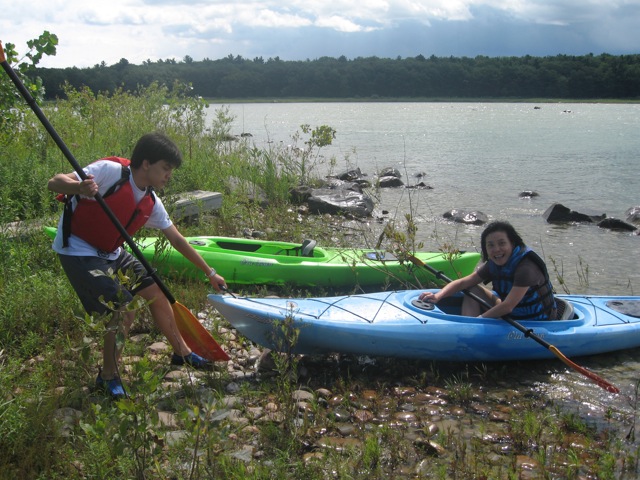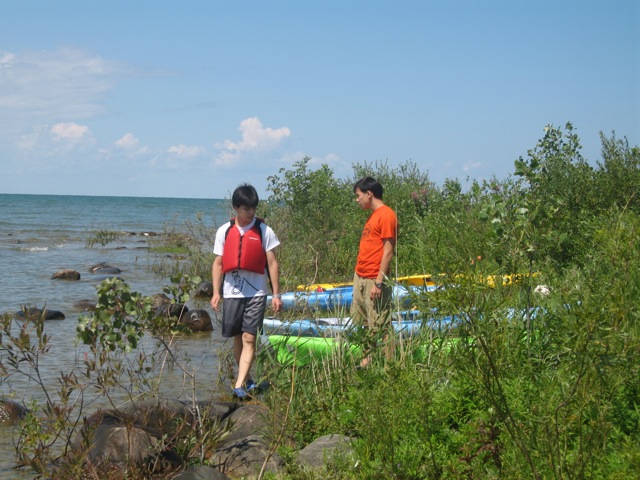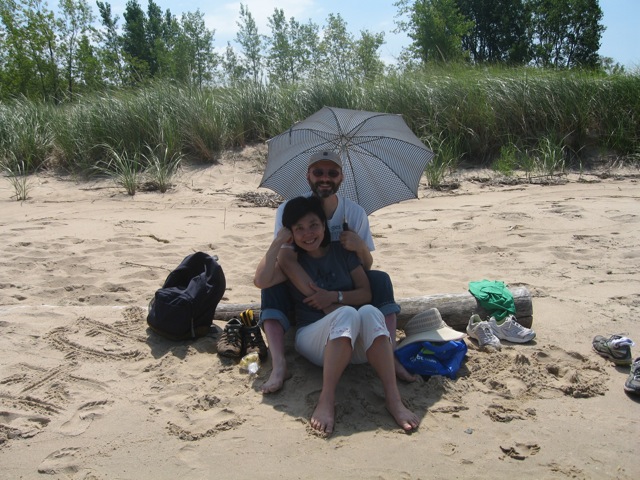My coffee maker
My favorite Christmas present was a coffee maker that uses a special brewing system. Think of it as a French press invented by a mad scientist.
My favorite Christmas present was a coffee maker that uses a special brewing system. Think of it as a French press invented by a mad scientist.
As part of the very thorough medical clearance, I need a lot of tests done. Yesterday two vials of my blood were drawn, and this morning I had to go back and lose another vial.
I have a history of breaking out in a cold sweat around needles, but this time I was able to get through it without any problems.
Even though the experience wasn’t traumatic, it wasn’t any fun getting stuck with a needle on my birthday. After it was over, I treated myself to a doughnut.
I was notified by email that Diplomatic Security now has a “complete security package” on me and will start to process my security application. I guess this marks the point at which my background check actually begins.
The additional information that they needed was on my foreign spouse. Stacy has relatives in Taiwan and in China, and we needed to supply the State Department with birth dates, addresses and occupation data for her aunts and uncles. This was tough; her relatives in China live in rural areas, and they don’t have “addresses” in the sense of an American mailing address. It isn’t as vague as “village by the mountain,” but it isn’t much more than that.
We decided to give as much information as we could, and added a footnote that she has never even met the Mainland Chinese relatives, and crossed our fingers. Luckily, State seems to be satisfied with what we gave them.
Official word from the State Department is that security clearances take between six and eight months. Other candidates are reporting on the online discussion group that their clearances are taking as little as three months, and the more typical time period seems to be four months.
I still think that, with my complicated background, my clearance will take closer to the longer end of the official time range. I would be very surprised if they were done with me in only three or four months.
The next step should be a face-to-face interview with an officer who will be in charge of my case. Then interviews with my employers, coworkers, friends, neighbors, etc. From what other people have written about the process, it’s pretty thorough. Although I’ve read several accounts about the security clearance process, I will reserve judgement. Experience has taught me not to believe everything that I read.
I need language points. My score on the Oral Assessment was high enough to qualify me for a job, but not high enough to ensure that I will actually receive an offer of employment. The process of selecting Foreign Service officers is a pure meritocracy: at this point in the process, only those candidates who have a high enough score will get a job.
Although I can’t do anything about my OA score, I can supplement it by showing a high proficiency in a foreign language. By taking a proficiency test, candidates can supplement their score, and thus win a higher place on the registry. In addition, not all languages are equally valuable to the FS. There is a list of “Super Critical Languages.” Not surprisingly, languages on that list are those that are spoken in strategically important countries. Chinese is on that list.
Being a speaker of Chinese, I am in the position to get extra language points if I can demonstrate high enough proficiency in Chinese.
But I’m worried. My Chinese is pretty good, especially speaking and listening. However, I have never been formally assessed.
I am fortunate that in the modern world, there is no shortage of what language teachers call “realia;” artifacts of real language that can be useful for language teaching and learning. Thanks to YouTube and other websites, there are many sources of real Chinese that I can use to improve my language skills.
The Chinese that is spoken in China is probably 90-95% the same as the Chinese spoken in Taiwan, but there are some differences in pronunciation and vocabulary. Think of British English and American English. Mostly the same, but still different.
Lately I have been watching Voice of America’s Chinese news, and the evening news from Taiwan’s Public Television Service. Both are freely available on the web.
The Taiwanese news is broadcast in an accent that is familiar to me, and I since I lived in Taiwan so long, I can relate to the topics and cultural references. But that isn’t going to be enough. It’s likely that I would be posted in China, so I need to be familiar with the accent and phraseology that is used in China. More importantly and practically, the person administering the test will likely be a Mainland Chinese person, not Taiwanese Chinese, so I have to get used to the accent. Voice of America’s Chinese programming is dominated by native speakers from China, and it seems that the intended audience of its programming is people in China. So it’s a good resource.
The background check is off to an inauspicious start. I just got an email from Diplomatic Security, asking for more information about my foreign-born spouse. They need a “biographical sketch” of each of her family members. This will be tough: some of her relatives are in Taiwan, some are in China. Hooha.
A lot has happened since I stopped blogging over two years ago. After my position was eliminated at Michigan State, I started a new career at a credit union, and simultaneously began applying to the US Foreign Service.
Through this blog, I will track my progress toward becoming a diplomat. Key milestones will be documented for the benefit of others who may be curious about my path.
Stay tuned…
After seeing a picture of Turnip Rock on the Internet last year, and discovering that it was in Michigan, I decided that we had to go see it in person.
We drove to Port Austin, which is on the very tip of Michigan’s thumb. We stayed the night in a local hotel, then the next morning, we rented kayaks and started our 2-hour paddle to the rock.

We stopped on a small island to rest and have lunch.

Lunch was MREs (“meals ready-to-eat”), which were developed for use by the military. They’re actually not bad-tasting, and very convenient for outdoor activities.

The north part of the thumb is surrounded by Lake Huron. The shore is rugged and rocky, and reminded us of Lake Superior in the UP.

Evan is a fearless kayaker (is that a word? My spellchecker seems to think not. But you know what I mean).

Stacy is more cautious. As we neared our destination, the wind and waves picked up quite a bit. Although I never was worried about getting capsized, we got splashed by several whitecap waves. Lucky for us, the sun was shining, and the water wasn’t cold.
We had some serious trouble landing near the rock. Stacy was carried past the rock, and was pushed up against the rocky ledge at water’s edge. Evan stopped to help her land, but waves moved his kayak too close to shore, and it got flooded. It took three of us to get it out of the water and drained. Stacy was spooked, and needed a minute to catch her breath.
Here’s a picture of me in front of the rock. You can see how rough the water is. Compare the water in this picture with this picture from another visitor’s blog. You can see the size of the waves that we had to contend with.

The trip back was uneventful. We had a nice dinner in town to celebrate being alive. The next day we went to the beach to enjoy the sun and water.

I highly recommend the trip to experienced kayakers, but watch the weather. Don’t go out if the waves are too high!
The inherent ambiguity of the Chinese language, plus Chinese L1 interference on L2 English, contributed to the death of my lawn mower today.
Ian and Evan both wanted the chance to make some money, so the obvious choice was to stop the lawn service and have the boys take turns cutting the grass for money. We notified our yard guy that his services were no longer required, and we planned to have the boys start mowing this week, right after they got back from camp.
I came home from work today, and saw the lawn mower in the middle of the back yard. The grass was not cut.
Stacy reported that the lawn mower was “broken.” It wouldn’t start, and the carburetor was spitting oil. I went out and gave the cord a few pulls. Sure enough, it wouldn’t start, and the carburetor was spitting something, but instead of dark oil, what was coming out was clear. I opened the cap to the oil tank, and saw that it was shiny and clear inside, instead of dark and murky. I was quite puzzled, until I put the cap back on. The cap was clearly labeled “oil.” I instantly knew what had happened.
As tactfully as I could, I asked Stacy what steps she had taken to prepare the lawn mower. She said that she put gas in it, then tried to start it. That confirmed my suspicions.
The Chinese word for gas is 汽油, which can be translated literally as “steam oil,” but we commonly shorten in to just æ²¹, which is the “oil” part. When we put gas in the car, we say åŠ æ²¹, literally, “add oil.” There is another word for “engine oil,” æ©Ÿæ²¹. Same æ²¹ “oil” character in the name of that, too.
Stacy saw the word “oil” on the cap, assumed that it meant “gas,” and poured gasoline into the oil chamber. It turns out that pouring gas down the oil hole isn’t good for the engine.
My lawn mower is dead, killed by bad translation from Chinese to English. Whom can I sue for that?